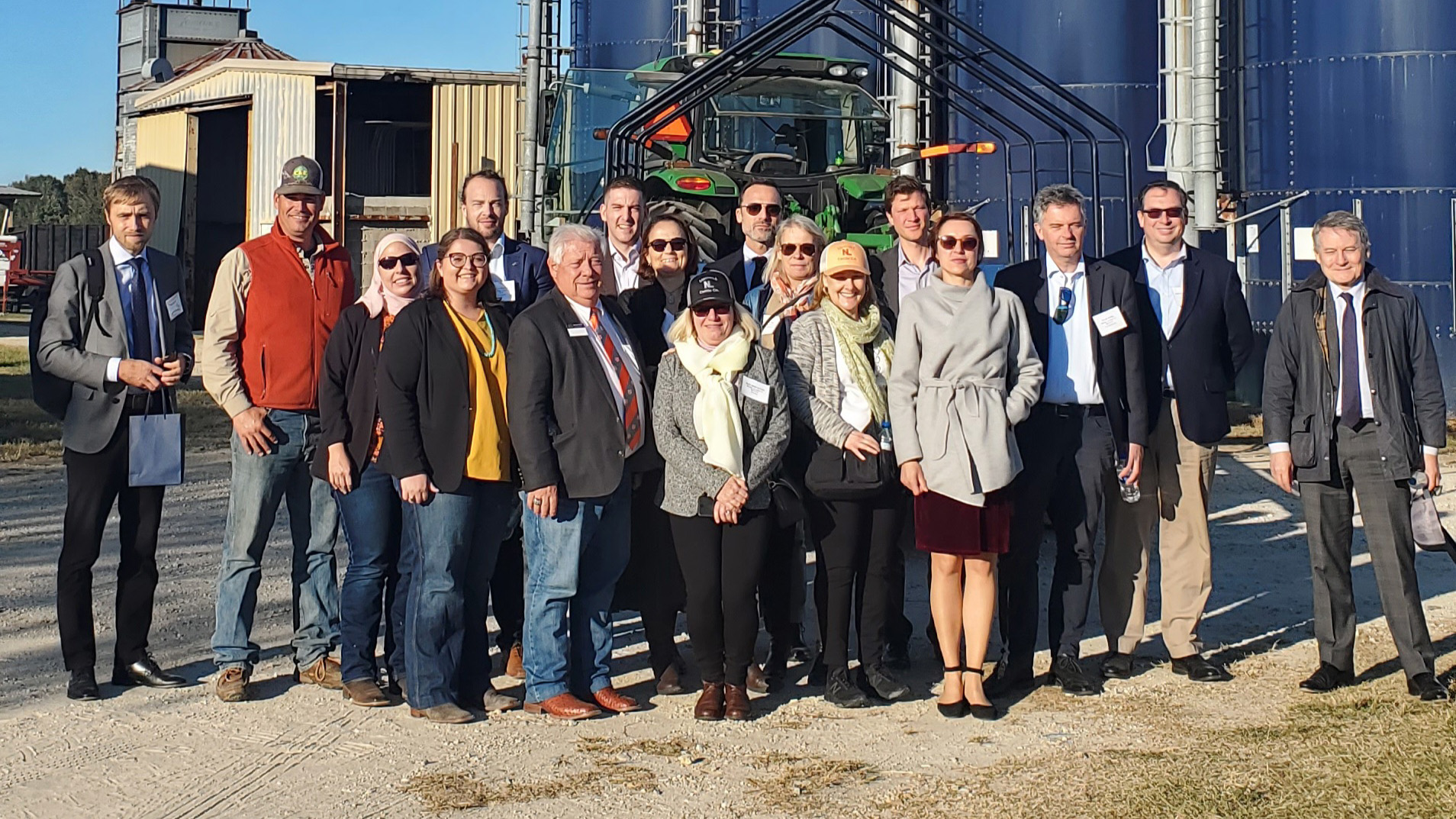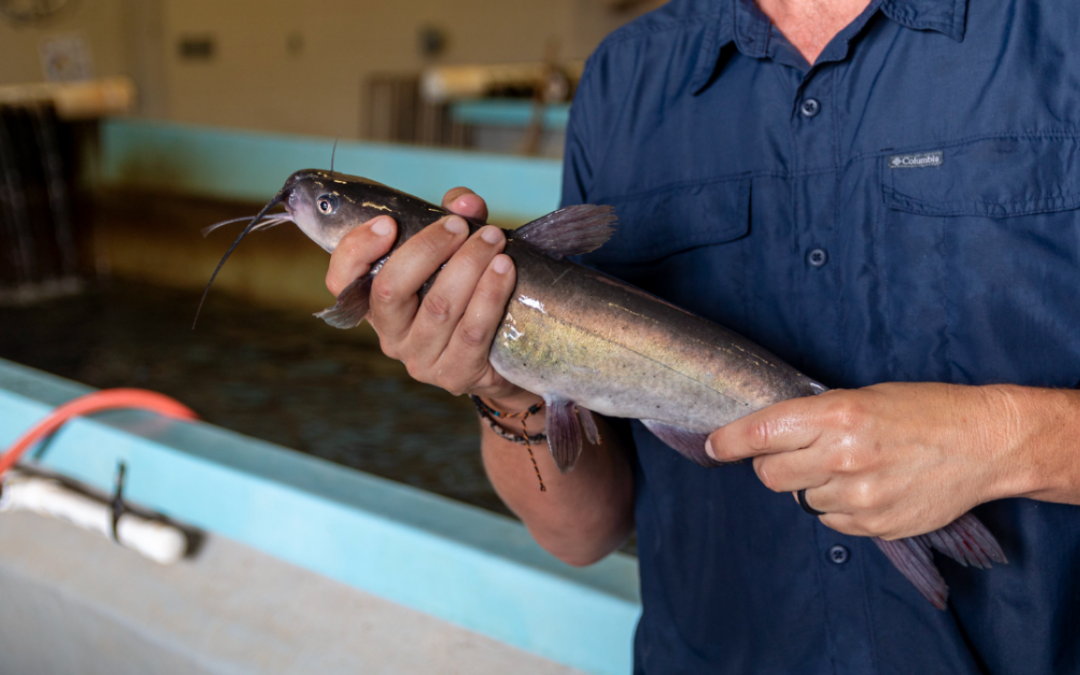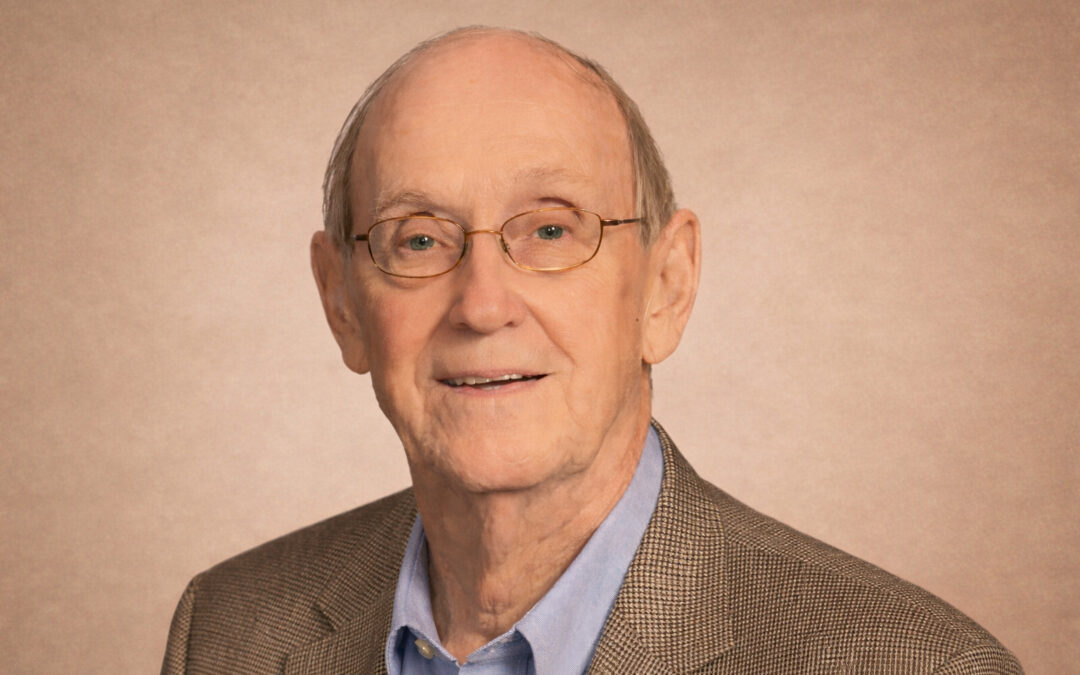The Auburn University Department of Animal Sciences hosted 12 foreign embassies for a study tour of beef cattle production systems in the Southeastern U.S. October 19-21. The delegation included representatives from Australia, Germany, France, Italy, Latvia, the Netherlands, New Zealand, Poland, Portugal, Spain and Switzerland. The study tour was developed through a partnership between animal sciences department head Wayne Greene and Silke Boger, counselor for agriculture to the European Union.
“This is the first of what I hope to be many opportunities for decision-makers in food animal agriculture from around the world to meet and see first-hand what we do in food animal production to sustain our industry,” Greene said. “We must be proactive in delivering technology to the marketplace for increased efficiency of production and transparent on our production methods in order to feed a growing world population high-quality protein far into the future.”
The tour focused on the sustainability of beef cattle production for delivering high-quality, safe and wholesome protein for a growing world population. The tour also focused on the environmental impact, animal care and well-being of beef cattle.
While learning about beef cattle production in the southeastern region, the delegation also delivered lectures for students in Auburn’s undergraduate and graduate beef production courses. Addressing the topic “Sustainability in Livestock – international trends and policy approaches,” they shared specific information from Germany, Italy, the Netherlands, Switzerland, Australia and New Zealand related to environmental issues on methane production, waste and nutrient management, and animal care.
The delegation spent part of its tour at the Alabama Cattlemen’s Association headquarters, where it was hosted by ACA leadership as well as Rick Pate, commissioner of the Alabama Department of Agriculture and Industries; veterinarians Tony Frazier and Misty Edmondson of the state veterinary office; representatives from the Alabama Farmers Federation and Alabama Agriculture Business Council; and beef cattle producers from across the state. The meeting was highlighted by roundtable discussion on issues facing beef production systems and production efficiency.
The delegation also was hosted at Auburn’s E.V. Smith Beef Cattle Research Center in Shorter, where it saw the university’s ongoing beef-forage research and heard presentations and discussions on research from Department of Animal Sciences faculty. The presentations highlighted research in areas such as nutrition, reproductive biology, genomics, quality assurance, meat products, meat safety and consumer preference.





